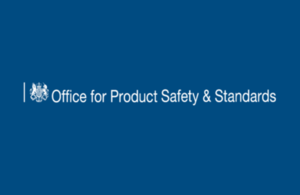Button batteries campaign: how to stay safe
Button batteries can badly injure or even kill a child, if swallowed.

We rely on button batteries to power everyday objects like car key fobs, remotes and children’s toys but they can badly injure or even kill a child if they are swallowed.
This is because the button battery reacts with saliva to create caustic soda – the chemical used to unblock drains. This can burn a hole in the throat and cause internal bleeding or even death.
Larger lithium ‘coin cell’ batteries are the most dangerous. It sounds scary, but there are simple ways to keep your child out of danger.
Store spare batteries securely
Store spare button batteries securely and out of children’s reach. Don’t leave them loose in drawers or on surfaces. Watch out when opening multi packs of button batteries in case they fall on the floor.
Know which toys and gadgets use button batteries
This includes everyday toys and gadgets, such as: robot bug or fish toys, fidget spinners with LED lights, slim remote controls, car key fobs, calculators, scales, gaming headsets, watches, hearing aids, nightlights and novelty items like singing Santas.
Check your home
Have a look around your home, if you find things powered by button batteries where the battery compartment isn’t secured by a screw, move them out of reach of small children. If it’s faulty, get it fixed or get rid of it safely. You can also report faulty toys to your local Trading Standards.
Teach older children the dangers
Teach older children why button batteries are dangerous and why they shouldn’t give them to young children.
Get rid of dead button batteries immediately
Children often find discarded button batteries lying around or under sofa cushions. ‘Dead’ button batteries can still have enough power to badly hurt a small child. When you remove one, store it securely and recycle it properly promptly.
If your child swallows a button battery
Symptoms may not be obvious. Your child might be coughing, gagging or drooling, or pointing to their throat or tummy. Unclear symptoms mean it’s important to be vigilant.
If you think your child has swallowed a battery, take them straight to the nearest A&E department or call 999 for an ambulance.
Do:
- take the battery packaging, toy or gadget – if you can – to help staff identify the battery
- trust your instincts and act fast, even if there are no symptoms
Don’t:
- let your child eat or drink
- make your child be sick
You can download our: